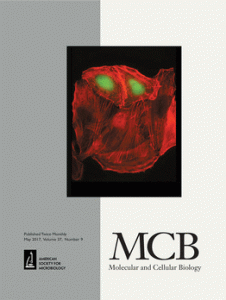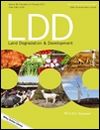In 2014, a journal contacted researcher Denis Rousseau about one of his papers that had just been published online ahead of print, raising some concerns. According to Rousseau, he sent the journal a corrected figure “almost immediately,” which he believed addressed the issue.
Rousseau, a cell biologist at the University Joseph Fourier in Grenoble, France, said he then contacted the journal many times over the next three years to ask about the status of the paper — which never ended up in print — but heard nothing back.
Three years passed.
In March, the publisher finally contacted Rousseau, this time to ask him to issue a formal retraction for the paper. And despite his objections, Molecular and Cellular Biology published a sparse retraction notice, which provides little information about what went wrong:


 A pharmacology journal has
A pharmacology journal has 
 Another editor has resigned from an earth science journal following allegations over citation irregularities, which also took down its editor-in-chief.
Another editor has resigned from an earth science journal following allegations over citation irregularities, which also took down its editor-in-chief. A researcher who resigned from the University of Dundee in Scotland after it
A researcher who resigned from the University of Dundee in Scotland after it  In an unusual turn of events, a nutrition paper has come back to life a year after being pulled from its original publication.
In an unusual turn of events, a nutrition paper has come back to life a year after being pulled from its original publication. A food science journal has retracted a paper over “a breach of reviewer confidentiality,” after editors learned it contained text from an unpublished manuscript — which one of the authors appears to have reviewed for another journal.
A food science journal has retracted a paper over “a breach of reviewer confidentiality,” after editors learned it contained text from an unpublished manuscript — which one of the authors appears to have reviewed for another journal.
